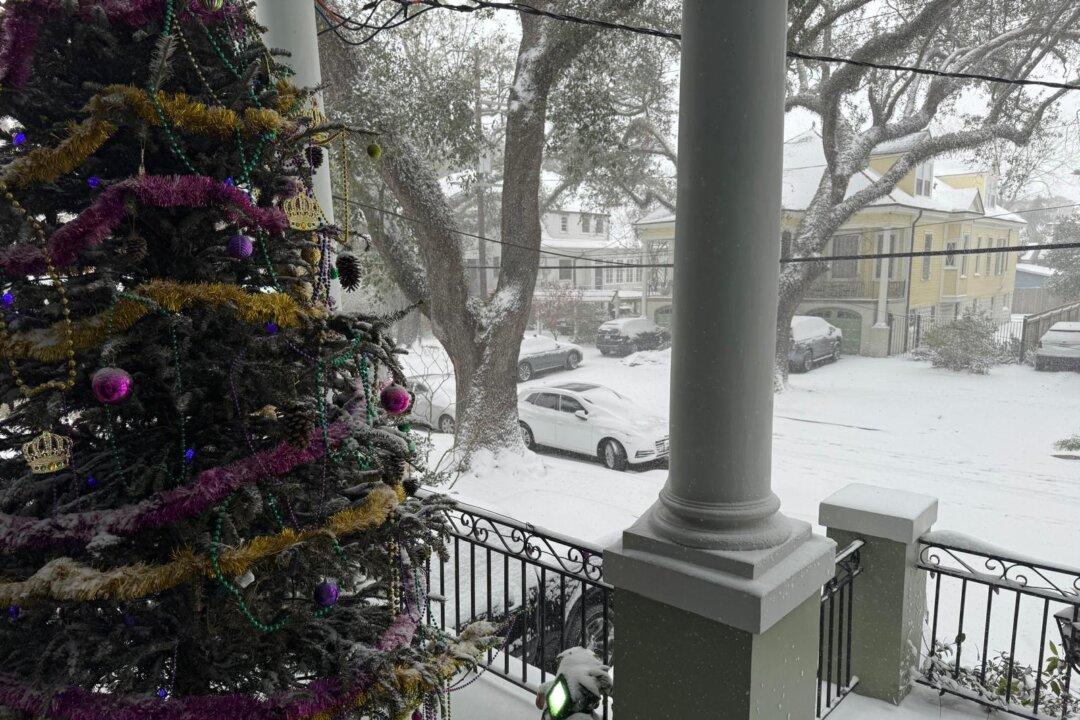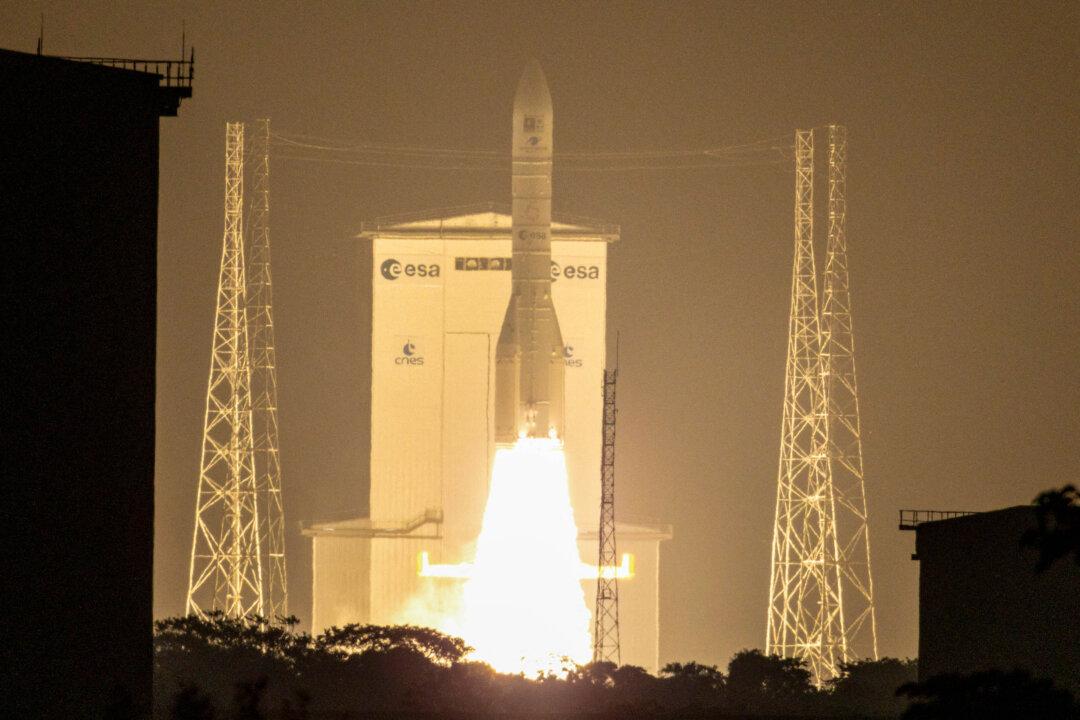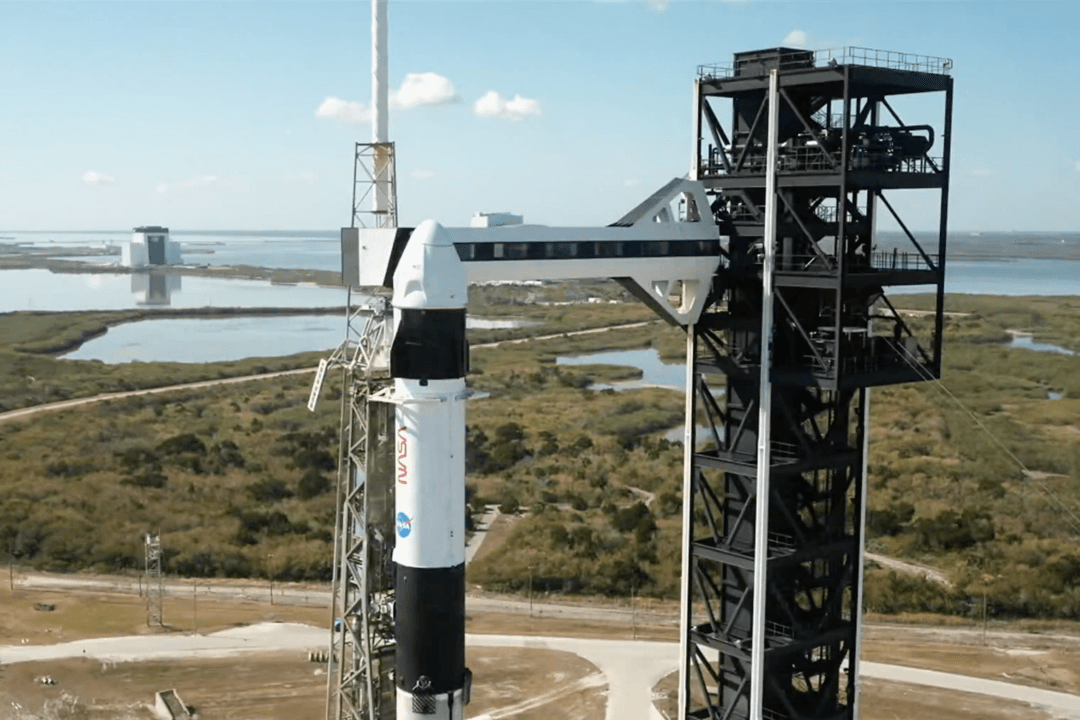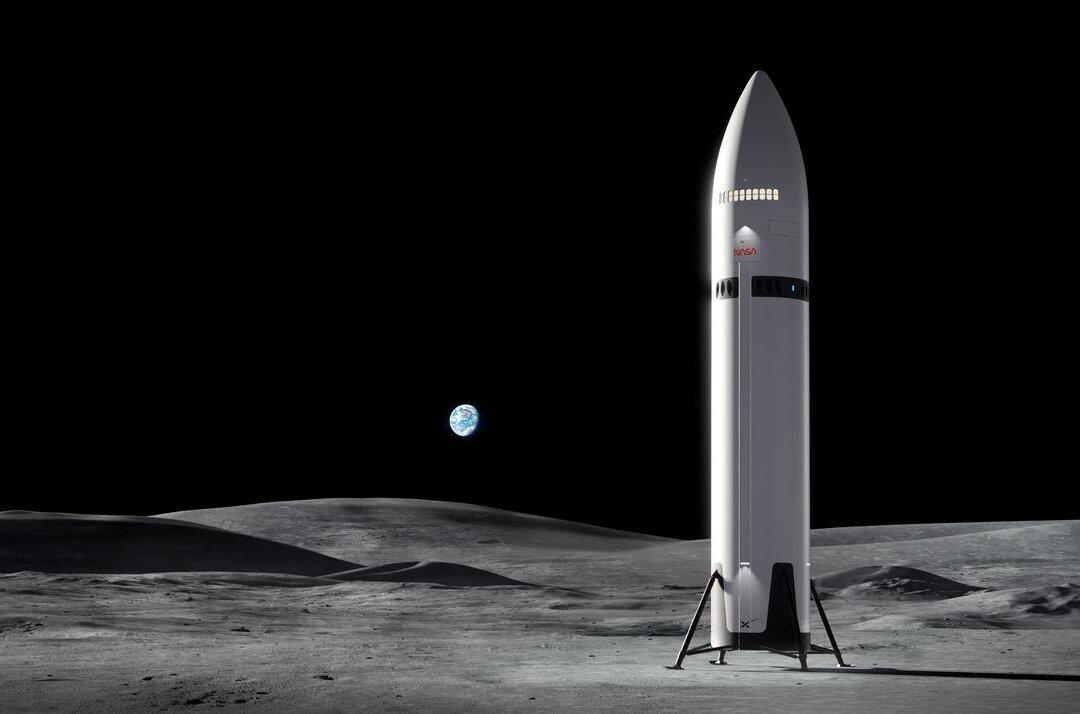Sam Grace, 31, beamed with excitement as his neighborhood outside Baton Rouge, Louisiana, became blanketed in a rare heavy layer of snow on Jan. 21.
The New Orleans native found himself caught in an arctic blast that brought several inches of accumulating snow to the streets of towns across the Deep South and Gulf Coast, including The Big Easy; Houston; Gulfport, Mississippi; Mobile, Alabama; and Pensacola, Florida.





